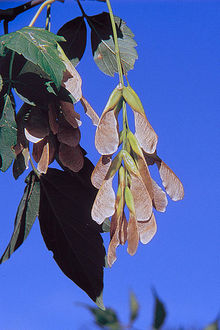Researchers in Europe are confirming the results of research related to the likely cause of Seasonal Pasture Myopthy. Preliminary comparisons of the results from the US with cases of Atypical Myopathy in Europe suggest that the condition in the latter may be linked to similar trees, which could have an important bearing on the future prevention of the disease in Europe.

Box elder toxins affecting horses
A toxin from the box elder tree is the likely cause of Seasonal Pasture Myopathy, the US equivalent of the European disease known as Atypical Myopathy.
A toxin from the box elder tree is the likely cause of Seasonal Pasture Myopathy (SPM), the US equivalent of the European disease known as Atypical Myopathy (AM), according to research published in the Equine Veterinary Journal (EVJ).
SPM is a highly fatal muscle disease in midwestern USA and eastern Canada. The similar disorder Atipical Myopathy is becoming increasingly frequent in the UK and Northern Europe – an outbreak of the disease took place in 2010 in Cornwall, killing seven horses. Outbreaks of both diseases tend to be seasonal, with most cases occurring in the autumn. Horses that develop SPM and AM are usually kept in sparse pastures with an accumulation of dead leaves dead wood and trees in or around the pasture and are often not fed any supplementary hay or feed.
The research from the US identified that seeds from box elder trees were consistently present in the autumn pastures of all 12 horses enrolled in the study. These horses were from 11 different farms and had all presented with the clinical signs of SPM, which include muscular weakness and stiffness, dark urine, periods of recumbency, colic-like signs and muscle trembling.
The toxic amino acid hypoglycin A, which is known to cause acquired multiple acyl CoA dehydrogenase deficiency (MADD) was shown to be present in the box elder seeds and hypoglycin metabolites were identified in the serum or urine of all the horses.
All but one of the cases proved fatal.
Professor Celia Marr, Editor of EVJ said "This is a really important step forwards. We don't yet know for sure that the cause of European disease, Atypical Myopathy, is the same as Seasonal Pasture Myopathy in the US, but the clinical signs and MADD aberrations are identical and both conditions have a high fatality rate.
"It remains to be seen whether this research will help European horses."
